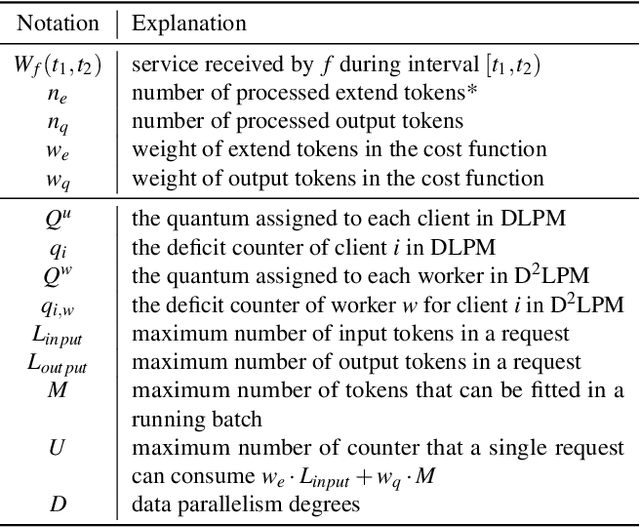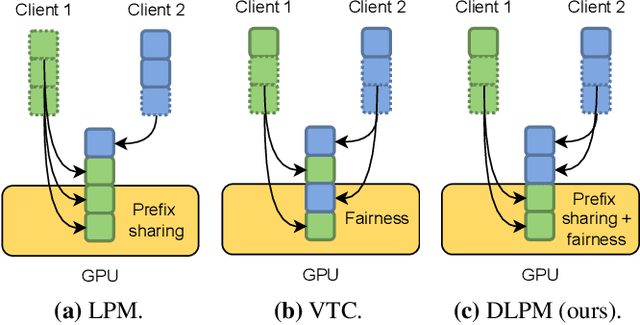Liangsheng Yin
FlashInfer-Bench: Building the Virtuous Cycle for AI-driven LLM Systems
Jan 01, 2026Abstract:Recent advances show that large language models (LLMs) can act as autonomous agents capable of generating GPU kernels, but integrating these AI-generated kernels into real-world inference systems remains challenging. FlashInfer-Bench addresses this gap by establishing a standardized, closed-loop framework that connects kernel generation, benchmarking, and deployment. At its core, FlashInfer Trace provides a unified schema describing kernel definitions, workloads, implementations, and evaluations, enabling consistent communication between agents and systems. Built on real serving traces, FlashInfer-Bench includes a curated dataset, a robust correctness- and performance-aware benchmarking framework, a public leaderboard to track LLM agents' GPU programming capabilities, and a dynamic substitution mechanism (apply()) that seamlessly injects the best-performing kernels into production LLM engines such as SGLang and vLLM. Using FlashInfer-Bench, we further evaluate the performance and limitations of LLM agents, compare the trade-offs among different GPU programming languages, and provide insights for future agent design. FlashInfer-Bench thus establishes a practical, reproducible pathway for continuously improving AI-generated kernels and deploying them into large-scale LLM inference.
Locality-aware Fair Scheduling in LLM Serving
Jan 24, 2025



Abstract:Large language model (LLM) inference workload dominates a wide variety of modern AI applications, ranging from multi-turn conversation to document analysis. Balancing fairness and efficiency is critical for managing diverse client workloads with varying prefix patterns. Unfortunately, existing fair scheduling algorithms for LLM serving, such as Virtual Token Counter (VTC), fail to take prefix locality into consideration and thus suffer from poor performance. On the other hand, locality-aware scheduling algorithms in existing LLM serving frameworks tend to maximize the prefix cache hit rate without considering fair sharing among clients. This paper introduces the first locality-aware fair scheduling algorithm, Deficit Longest Prefix Match (DLPM), which can maintain a high degree of prefix locality with a fairness guarantee. We also introduce a novel algorithm, Double Deficit LPM (D$^2$LPM), extending DLPM for the distributed setup that can find a balance point among fairness, locality, and load-balancing. Our extensive evaluation demonstrates the superior performance of DLPM and D$^2$LPM in ensuring fairness while maintaining high throughput (up to 2.87$\times$ higher than VTC) and low per-client (up to 7.18$\times$ lower than state-of-the-art distributed LLM serving system) latency.
Efficiently Programming Large Language Models using SGLang
Dec 12, 2023Abstract:Large language models (LLMs) are increasingly used for complex tasks requiring multiple chained generation calls, advanced prompting techniques, control flow, and interaction with external environments. However, efficient systems for programming and executing these applications are lacking. To bridge this gap, we introduce SGLang, a Structured Generation Language for LLMs. SGLang is designed for the efficient programming of LLMs and incorporates primitives for common LLM programming patterns. We have implemented SGLang as a domain-specific language embedded in Python, and we developed an interpreter, a compiler, and a high-performance runtime for SGLang. These components work together to enable optimizations such as parallelism, batching, caching, sharing, and other compilation techniques. Additionally, we propose RadixAttention, a novel technique that maintains a Least Recently Used (LRU) cache of the Key-Value (KV) cache for all requests in a radix tree, enabling automatic KV cache reuse across multiple generation calls at runtime. SGLang simplifies the writing of LLM programs and boosts execution efficiency. Our experiments demonstrate that SGLang can speed up common LLM tasks by up to 5x, while reducing code complexity and enhancing control.
 Add to Chrome
Add to Chrome Add to Firefox
Add to Firefox Add to Edge
Add to Edge